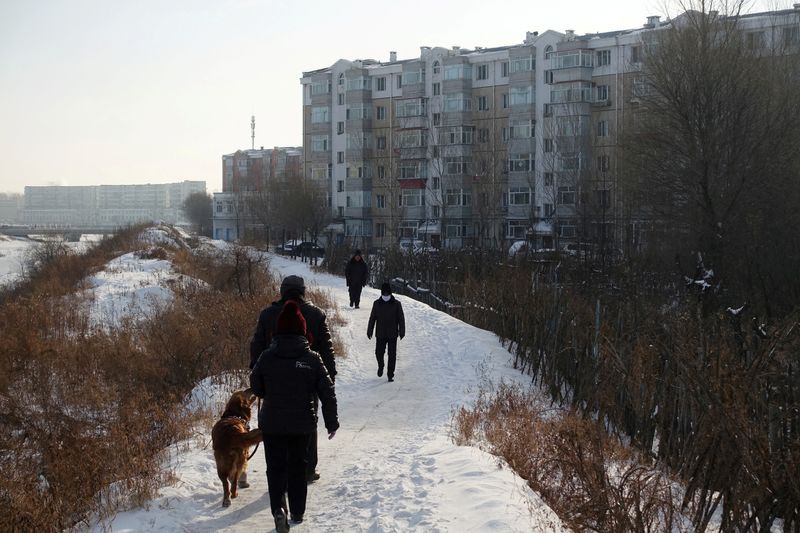By Clare Jim and Vijdan Mohammad Kawoosa
HONG KONG (Reuters) - China's property market, a key pillar of the world's second-largest economy, has weakened sharply in the past year as a result of a government clampdown on excessive borrowings by developers, and a COVID-19-induced economic slowdown.
So far this year, more than 100 cities have taken steps to boost home purchase demand via cuts in mortgage rates, smaller down-payments, and subsidies. However, the outlook remains bleak as the government enforces strict COVID curbs in dozens of cities, weighing on consumer confidence. da0e149e-23a0-4e72-8dd4-a14c212d6c9e1
(Home prices in China: https://graphics.reuters.com/CHINA-PROPERTY/znpneojorvl/chart.png )
China's property market problems are likely to worsen this year, with no growth in home prices seen for the full year, according to the latest Reuters poll.
Analysts said the national housing inventory is at a high level, particularly in tier-three and four cities which face large de-stocking pressure due to slowing demand. b06fba09-f006-4911-b9ad-242d20236d222
(Property sales by area in China: https://graphics.reuters.com/CHINA-PROPERTY/dwpkrnjnjvm/chart.png)
Property sales in April, by value, fell at their fastest pace in around 16 years despite more policy easing steps aimed at reviving the sector.
Further rate cuts this month aimed at easing home buyers' mortgage burden did little to convince investors and analysts that they could boost demand.
Fitch Ratings last month lowered its forecast on the property sales by value, expecting them to fall 25%-30% in 2022, compared to a previous forecast of 10-15% fall.
Financial regulators have pledged to keep credit growth stable in the property sector and help homebuyers affected by COVID-19 outbreaks to defer their mortgage payments, the central bank said in a statement on Tuesday. 24b6b938-f697-4de0-a8c2-b2231dd9df263
(Property investments in China: https://graphics.reuters.com/CHINA-PROPERTY/gdpzyenaxvw/chart.png)
Many private property developers have tightened their belts as they faced a slump in sales and struggled to access funding. It would take many more months before regulators' easing measures have a material impact on the market, they say.
Some developers are heeding Beijing's call and accelerating a push into asset-light businesses such as property services and commercial real estate to cut reliance on a high-debt, high-turnover model blamed for the liquidity crisis. a6c9e676-a3f3-407a-b0de-5c7221264ed24
(New construction in Chinahttps: https://graphics.reuters.com/CHINA-PROPERTY/gkvlgzjzzpb/chart.png)

New construction starts plunged 44.19% in April from a year earlier, the fastest pace since January-February 2020 in the early days of the pandemic. Developers also slowed new construction as they tried to preserve capital, adding to uncertainties facing potential home buyers.
Yuan loan growth tumbled in April as the pandemic jolted the economy and weakened credit demand, official data showed earlier this month. Household loans, including mortgages, contracted by 217 billion yuan, pointing to a deep freeze in the market.